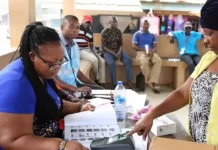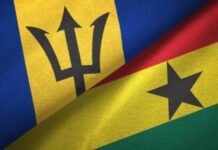
Since we issued our statement on Wednesday, 26 August 2020 on the Agyapa transaction, we have received messages from many different quarters, whether of commendation or respectful disagreement.
We feel compelled to offer some elaboration and clarification in respect of the matters we raised and, in some respects, draw attention to what in our statement appears to have been overlooked by defenders of the transaction.
The fundamental question on which we sought to focus was: what is the proper value of the royalty rights of Government which the transaction seeks to assign to the Agyapa company?
This is not merely a technical question. To demonstrate this, let us use a hypothetical example. If the proper value of the rights being assigned is US$3 billion but we accept the US$1 billion figure stipulated in the agreements, a person who pays US$500 million for half of the shares in the company can promptly sell those shares for US$800 million to a person willing to purchase at that price, knowing the real underlying value.
If that happened, US$300 million which should be in Government coffers would have gone to private parties. It is irrelevant that the Government still retains its fifty percent interest: it
would have ceded US$300 million to private parties for no good reason.
So the consequences of the initial undervaluation can have a huge impact on our revenue situation. That would be particularly grave given the indefinite duration of the extensive rights being assigned.
This is why we think that the issue deserves closer attention and requires fuller answers from the Ministry of Finance and the Minerals Income Investment Fund than we have seen so far.
This is the context in which we ask a number of simple questions:
How was the figure of US$ 1 billion arrived at as the value of the rights being assigned?
We have heard it said that this is simply a nominal figure used for the incorporation of Agyapa. That does not, presumably, mean it was arbitrarily chosen. The question as to how it was arrived at remains.
Secondly, if that is not the Government advisors’ opinion as to the real value of the rights being assigned to the company, what then do they think is the real value?
- How did they arrive at their valuation?
- What gold prices did they use and over what period?
- What projections of the quantity of gold to be produced did they use and over what period?
We have heard it said that Agyapa will operate as a royalty company. In the industry, a royalty company is one that funds mining projects and, normally, in return receive royalties from the revenue that those projects yield. The fact that Agyapa is being assigned royalties payable to the Government does not, by itself, make it a royalty company.
If Government and the MIIF have decided that Agyapa would operate as a royalty company in the conventional sense, this presumably means that a business plan has been developed identifying prospects the company will fund, with an analysis of what those projects will yield.
If such a business plan exists, we would be very interested in looking at it as we are sure, would the Ghanaian public. It is, of course, not the case that simply because Agyapa operates as a royalty company, it will make profits like successful ones do.
We understand that questions have been raised as to why we used different royalty rates in the revenue computations attached to our statement.
In fact, the notes in the attachment explain this quite clearly. Of the eleven companies we have considered, the royalty rates for those that produce sixty percent of the total volume are on a sliding scale, while the others have a fixed rate of 5%.
So in computing royalty revenue from the mines for any year, you must take account of the fact that the gold price affects the rate to be paid by the sixty percent producers and also give appropriate weight to what their production represents as a percentage of the total.
This transaction has huge implications. It is important for its legitimacy and for the country that it does not appear that it is being railroaded through in the face of genuine concerns which have not been adequately addressed.
Source:Kofi Ansah and Fui S. Tsikata





























